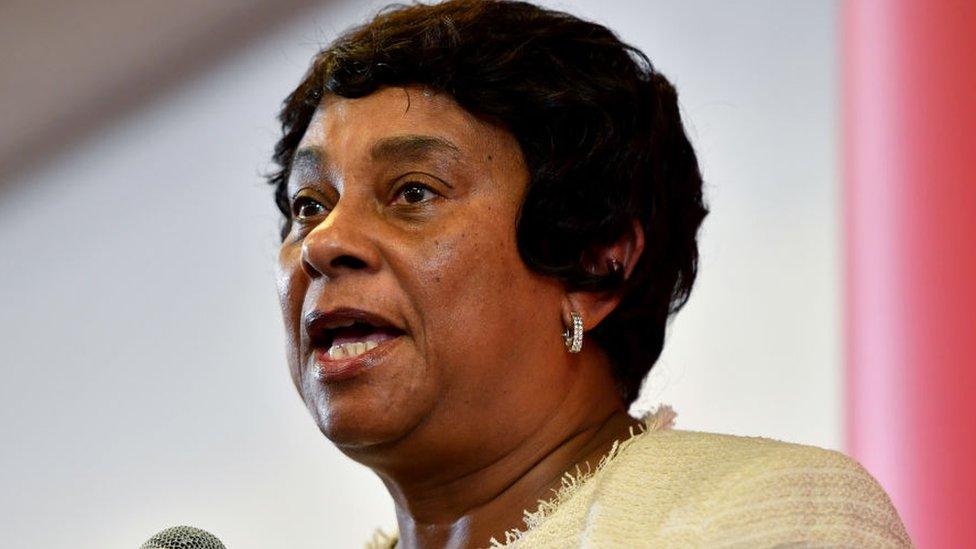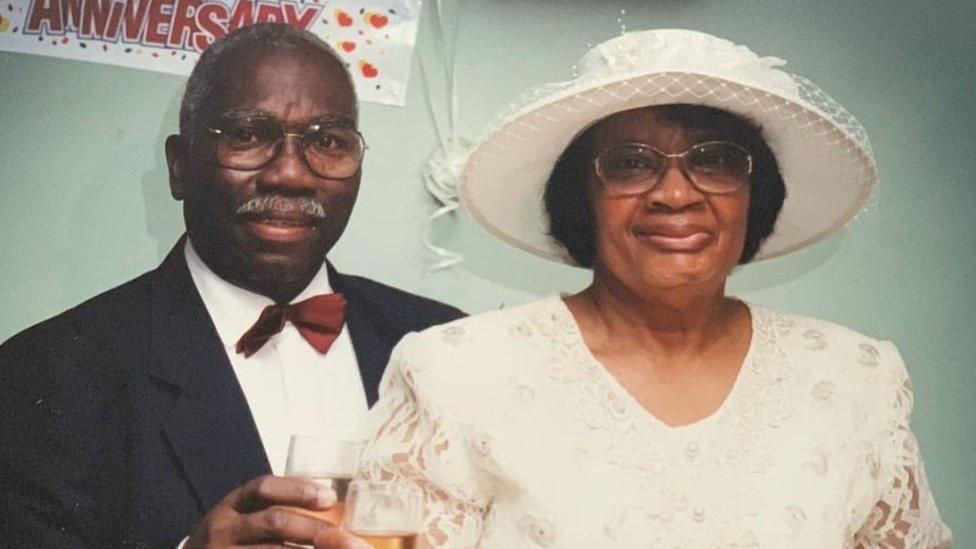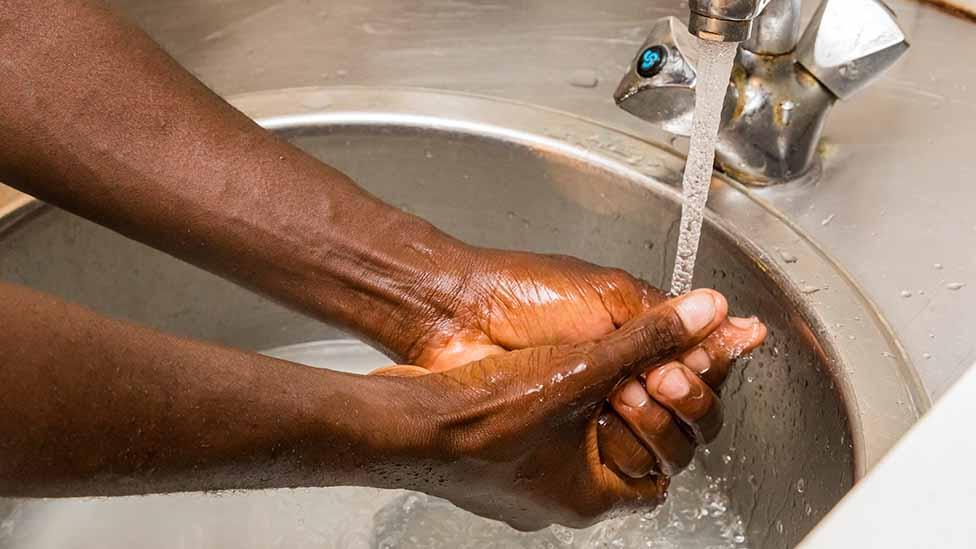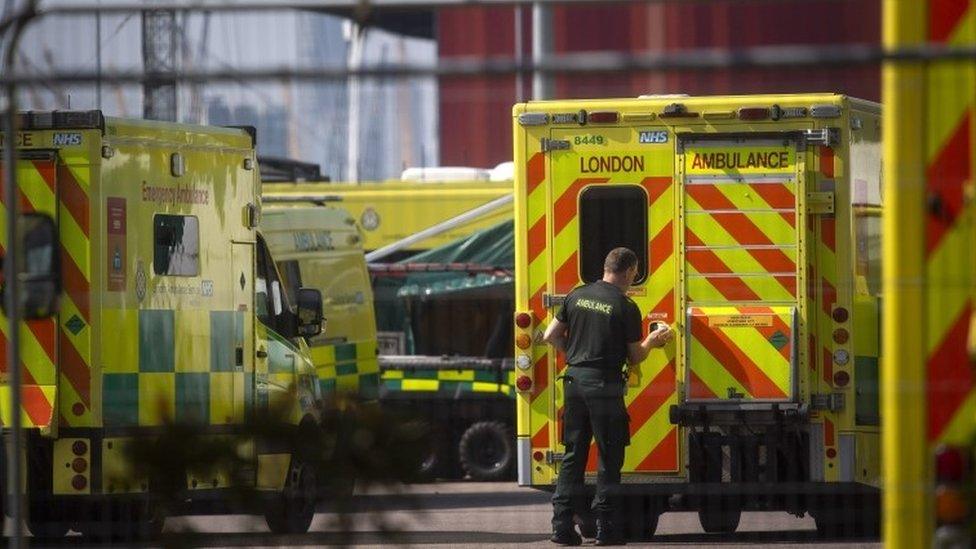Covid has thrived on racial discrimination, says Baroness Doreen Lawrence
- Published

Baroness Lawrence says "decades of structural injustice" have increased Covid rates among BAME communities
Covid-19 has "thrived" among black, Asian and ethnic minority (BAME) communities because of structural race discrimination, a Labour report says.
Its author, Baroness Lawrence, said these groups were "over-exposed" and faced "barriers" to healthcare.
BAME people had also been scapegoated for Covid's spread, she added.
But a government adviser said last week that "structural racism" was not in itself a "reasonable explanation" for rates differing between ethnic groups.
Dr Raghib Ali also suggested that focusing on other factors like people's jobs and housing conditions would help more people.
And Equalities Minister Kemi Badenoch said higher transmission rates among BAME groups appeared to be down to "a range of socio-economic and geographical factors", including exposure at work, population density and household composition, as well as pre-existing health conditions.
Government analysis published in August found people of Bangladeshi ethnicity had about twice as high a risk of death, external from Covid-19 as white British people.
People of Chinese, Indian, Pakistani, other Asian, black Caribbean and other black ethnicity had between a 10% and 50% higher risk of death when compared with white British people.
In her report, Baroness Lawrence - whose 18-year-old son Stephen was murdered in a racially motivated attack in 1993 - wrote: "Black, Asian and minority ethnic people have been over-exposed, under-protected, stigmatised and overlooked during this pandemic - and this has been generations in the making.
"The impact of Covid is not random, but foreseeable and inevitable, the consequence of decades of structural injustice, inequality and discrimination that blights our society."
The report said BAME workers were more likely than white people to work in "frontline" jobs and come into contact with coronavirus.
When accessing healthcare, there was a "lack of cultural and language-appropriate communication", with patients "not being taken seriously when presenting with symptoms", it added.
BAME people were also "under-represented across the senior leadership of the NHS".
Baroness Lawrence, whose report was commissioned by Labour leader Sir Keir Starmer in April, said BAME groups had "also been subject to disgraceful racism as some have sought to blame different communities for the spread of the virus".
She asked ministers to outline a plan to tackle a rise in hate crime, with party leaders "issuing a joint statement condemning attempts to pit communities against one another".
"Covid-19 has thrived on inequalities that have long scarred British society," Baroness Lawrence, a Labour peer since 2013, said.
A Public Health England report published in June said factors such as racism and health inequality, external may have contributed to an increased risk of BAME communities catching and dying from Covid-19.
Dr Ali said last week that considerations such as occupation, living in crowded housing and having a pre-existing condition explained part of the difference.
However, Ms Badenoch said the risks "remained unexplained for some groups" and promised to report back to MPs at the end of the next quarter with the latest evidence.
A government spokesperson said that "many of the factors identified in the [Labour] report affect non-ethnic groups as well".
It was important to "identify the root causes of the disparities we're seeing and not assume they are evidence of discrimination or unfair treatment in public services like the NHS", they also said.
- Published18 April 2020

- Published19 June 2020

- Published12 April 2020
